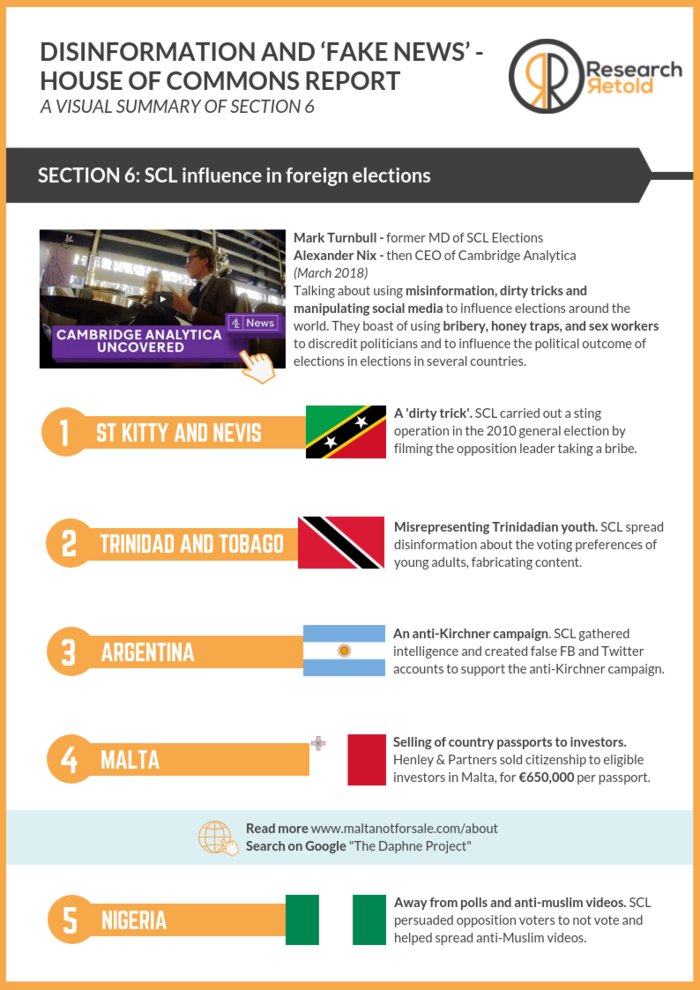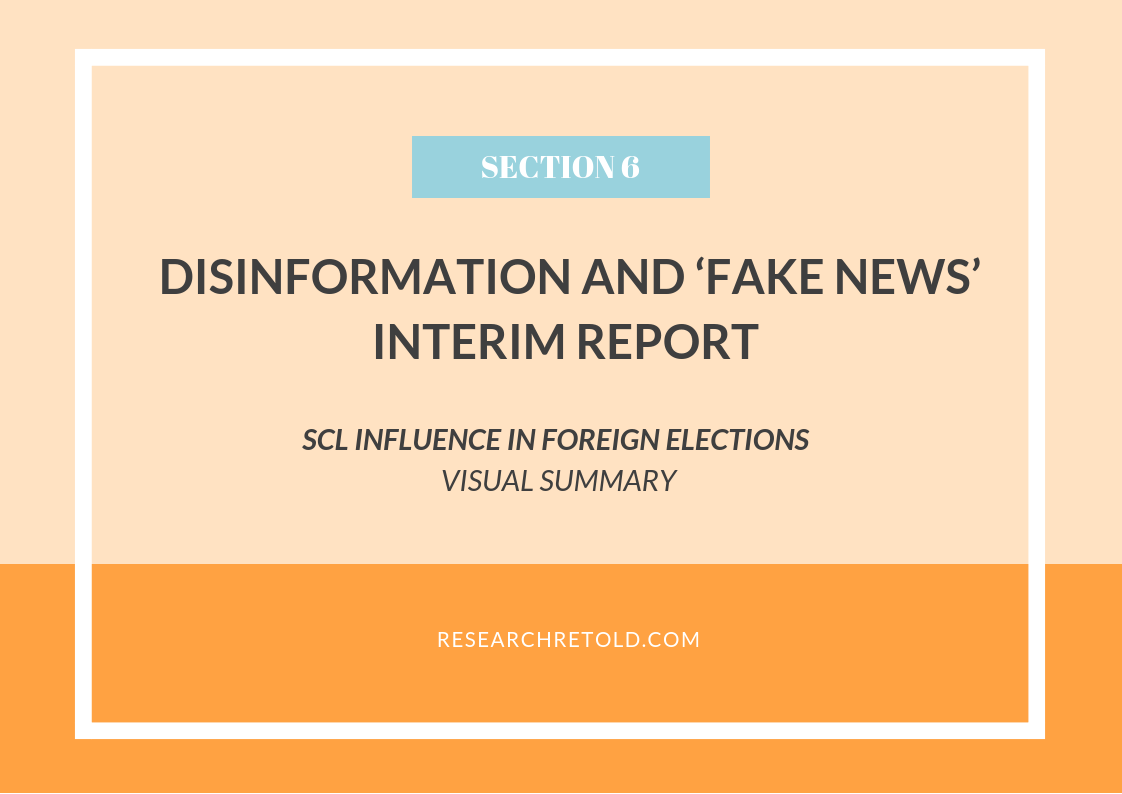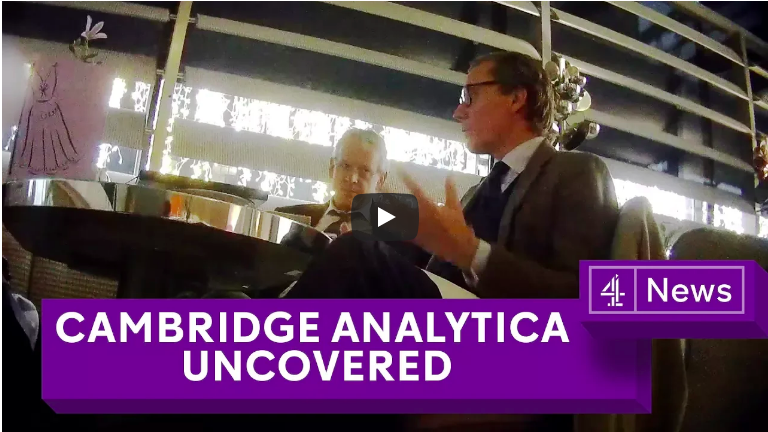In this blog post, we look at the issue of SCL influence in foreign elections, focusing on five examples that include misinformation, disinformation, and malign manipulation.
This post is based on Section 6 of the Disinformation and ‘fake news’ report and is the fifth in a series of seven posts.
Let´s begin!
About the report
In July 2018, the House of Commons Digital, Culture, Media and Sport Committee published an Interim Report titled Disinformation and ‘fake news’.
The scope of this report:
To study ‘the spread of false, misleading, and persuasive content, and the ways in which malign players, whether automated or human, or both together, distort what is true in order to create influence, to intimidate, to make money, or to influence political elections.’
A specific focus of the report is to address concerns related to the “political use of social media”.
The report includes seven sections:
1. Definition of fake news and how to spot it
2. Role of tech companies – definition, legal liabilities
3. The issue of data targeting, based on the Facebook, GSR and Cambridge Analytica allegations
4. Political campaigning
5. Russian influence in political campaigns
6. SCL influence in foreign elections
7. Digital literacy
What is the SCL influence in foreign elections?
In this section, the report talks about the extent of SCL influence in foreign elections. It starts by mentioning the Channel 4 undercover investigation, broadcast in March 2018, which filmed Mark Turnbull, former Managing Director of SCL Elections, and Alexander Nix, the then CEO of Cambridge Analytica.
In this video, the men talk about using misinformation, dirty tricks and the manipulation of social media to influence elections around the world. Moreover, they boast of using bribery, honey traps and sex workers to discredit politicians and to influence the political outcome of elections in elections in several countries.
SCL influence in foreign elections – 5 countries
The report explores five examples of SCL influence in foreign elections including misinformation, disinformation, and malign manipulation.
First, in St Kitty and Nevis SCL played a ‘dirty trick’ by orchestrating a sting operation on the opposition leader.
Second, in Trinidad and Tobago SCL disseminated disinformation about the voting preferences of young adults.
Third, in Argentina SCL was involved in an anti-Kirchner campaign creating false Facebook and Twitter accounts.
Fourth, in Malta SCL’s close collaborator, Henley and Partners sold citizenships to eligible investors. A journalistic initiative called ‘Malta is not for Sale‘ alerted about the dangers of this scheme. This scheme attracted international attention when Daphne Caruana Galizia, the leading Maltese investigative journalist on this issue, was assassinated. However, the global journalist community responded to her work by publishing ‘The Daphne Project‘.
A week after Daphne Caruana Galizia’s assassination, the Maltese Prime Minister Joseph Muscat claimed Malta is ‘open for business’. Moreover, Lord Ashcroft extolled the virtues of Malta, as the “best destination for ambitious UK firms” to have a post-Brexit presence in the EU.
Finally, in Nigeria SCL persuaded opposition voters not to vote at all, and helped spread anti-Muslim videos in an effort to damage Buhari’s presidential campaign.
VISUAL SUMMARY OF SECTION 6

Next week we will tackle Section 7 of the Disinformation and ‘fake news’ report.

